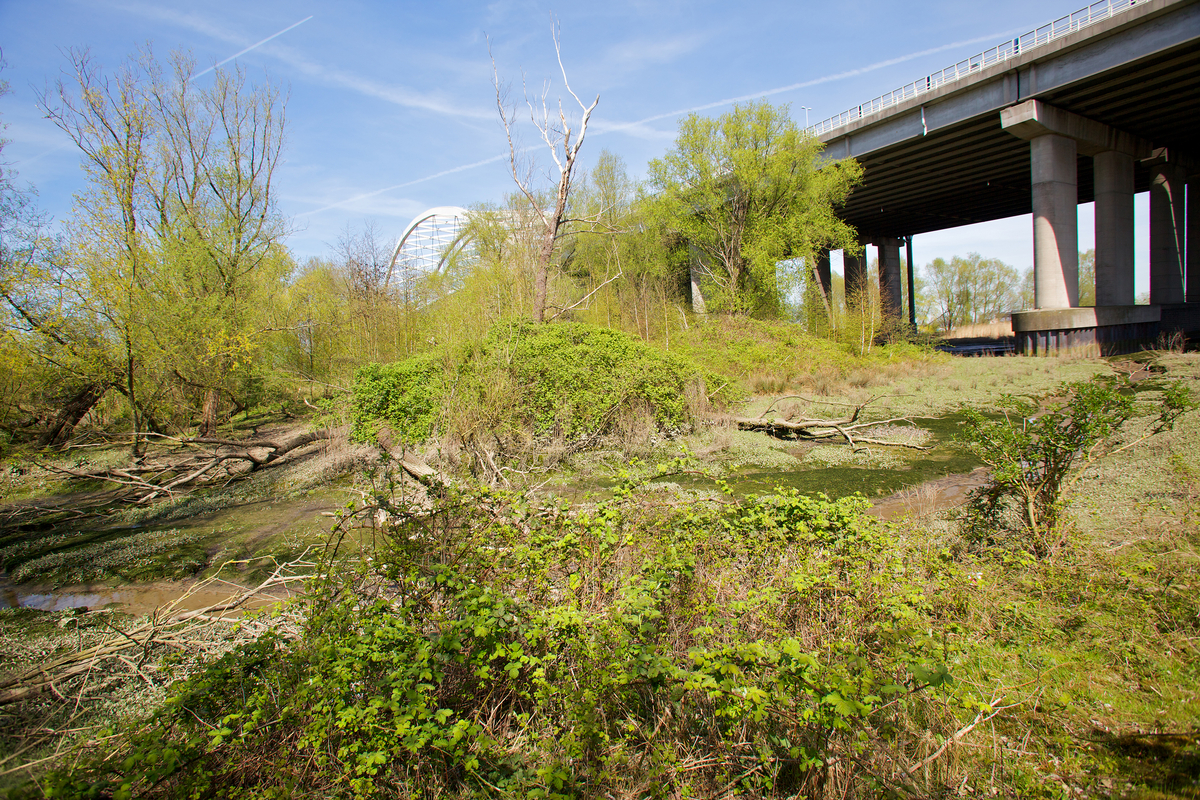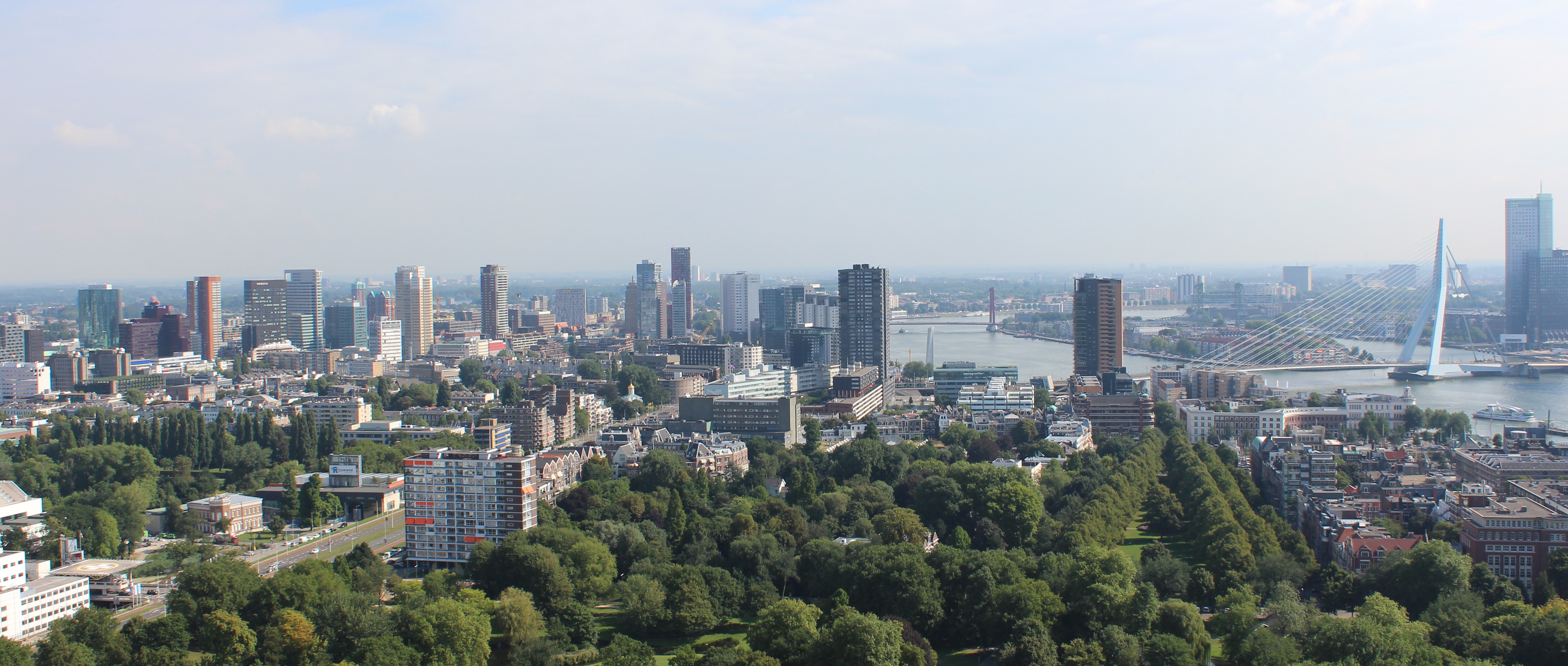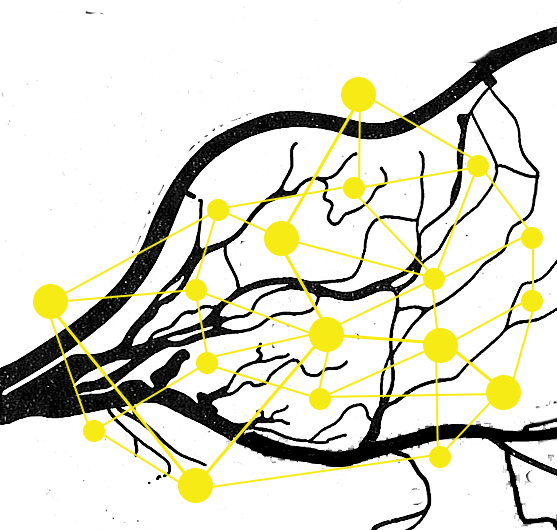We all know what to expect when it comes to climate change: the weather is getting more extreme and sea levels are rising, are some of the certainties. It are the uncertain factors of society that determine what our living environment will look like in the future.
Climate trends and their effects aren’t the main point of discussion in Meteopolis - the city of 2060. Instead, we’re focusing on how to act on these trends. Is climate change a public or a private problem? Who owns the city? Who bears the responsibilities and who will bear the burdens? Do we stick to our familiar way of life, or do we radically change our course?
Join our trip to Rotterdam in 2060
Four design teams were commissioned to shape their dreams for the city of 2060, each with a different combination of uncertain social and economic factors as a starting point. In this way, four different cities were created. Cities of the future, in which people live, work, travel and live together in different ways. Albeit working with different uncertainties, the teams shared one common denominator: every dream strives for a good and valuable life for the city’s residents.
Prevention is (not) better than cure
Do we keep resisting the rising water, or do we let it come? Can smart interventions prevent us from being powerless against a changing climate? Or are climate effects too drastic to stop?
Everyone for themselves or act collectively
Is solving climate effects a public task? Or do we as citizens have to take responsibility independently? In any case: a sustainable and comprehensive solution requires dedication from many different parties, beyond your own interests.
Scenarios
Nieuw Rotterdams Peil: Rotterdam without dikes
The consequences of climate change entail more than rising sea levels. Subsidence, extreme fluctuations in groundwater levels, excessive rainfall, drought and heatwaves are effects that are already noticeable. Marieke Vromans and Floor van den Bergh argue against constant adaptation to the effects of climate change. In 2020, they decided to take a different approach, which resulted in this city of 2060.
The fear of water needs to be replaced by more knowledge about its added value. Perhaps it is possible to solve all climate effects and improve the quality of life in the city with one intervention.
Waarom een bezoek brengen aan een Rotterdam zonder dijken?
Rotterdam is a lively city with a good balance between peace and tranquility and hustle and bustle. The city is made up of various residential nodes; best to be described as mini-cities, surrounded by a sea of green. Each residential node has its own function, character and community, each with its own vision. This diversity ensures that visitors are not easily bored. It also serves as a unique example, which inspires urban developers from all over the world. The face of the city changes several times a day. These changes coincide with the coming and going of ebb and flow. Residents of Rotterdam are among the happiest people in the world. Come and find out what their secret is!
No more fighting against, but look further to move along”
— Derek Otte, 2018

Studio Marieke Vromans & Buro Bergh
What if you combine imagination – the ability to see things differently and think freely – with knowledge and experience about urban design and climate adaptation? This is the central question in the collaboration between visual artist Marieke Vromans and climate adaptation advisor and designer Floor van den Bergh.
Floor and Marieke investigate what our city can achieve when we let go of our fear of the water and embrace it instead.
Studio Marieke Vromans & Buro Bergh
Scenarios
The New Fundament
In its quest for a hopeful and energizing way to convey its message of urgency, the team came across faith; faith in a sustainable and equal world. Can a creed be used to mobilize a broad movement in Rotterdam and beyond?
Verveeld � Verward founded a new creed, called Het Nieuwe Fundament☒ (The New Fundament☒), which has both a physical and a spiritual side. On the physical side, HNF☒ ensures that city residents literally become co-owners of the land. On the spiritual side, HNF☒ offers guidance in the form of four commandments, one of which is a rock-solid faith in science. Based on the belief in these principles and this “sacred” ground, V�V aims to set a real movement in motion. Become a shareholder! Go to www.hetnieuwefundament.nu.
Geloof in vooruitgang
Rotterdam is progressive, proud and full of surprises. Everywhere you will find green, refreshingly cool oases that are accessible to city dwellers and visitors alike. These oases are often located in and around obsolete infrastructure from the past fossil era.
Traditionally, those who love innovative architecture cannot ignore Rotterdam. Much of the iconic high-rise buildings have taken on new functions today, including indoor food production and initiatives from local entrepreneurs and creatives. Large swaths of land in the city are owned by the people of Rotterdam themselves, strengthening a bond between them and the city and amongst each other.
In 2020, Rotterdam was the first city where Het Nieuwe Fundament☒ (HNF☒) took root, after which it was applied integrally in urban development. HNF☒ has four basic commandments for life and design: everything sustainable, socially inclusive, animal and human friendly and scientifically substantiated. The conviction to design the entire city in a climate-adaptive, sustainable and fair way is reflected everywhere.
You can't ask people to change in an unfair society.
— Naomi Klein, journalist en activist

Verveeld � Verward
Verveeld � Verward is a design agency for art with impact set up by Jonas and Dorine Martens-Baars. Using spatial works it connects people, places, imagination and clear-cut reality. V�V approaches every project from the perspective of sustainability. V�V works on projects that require iconic change, positive social impact and inspiration.

